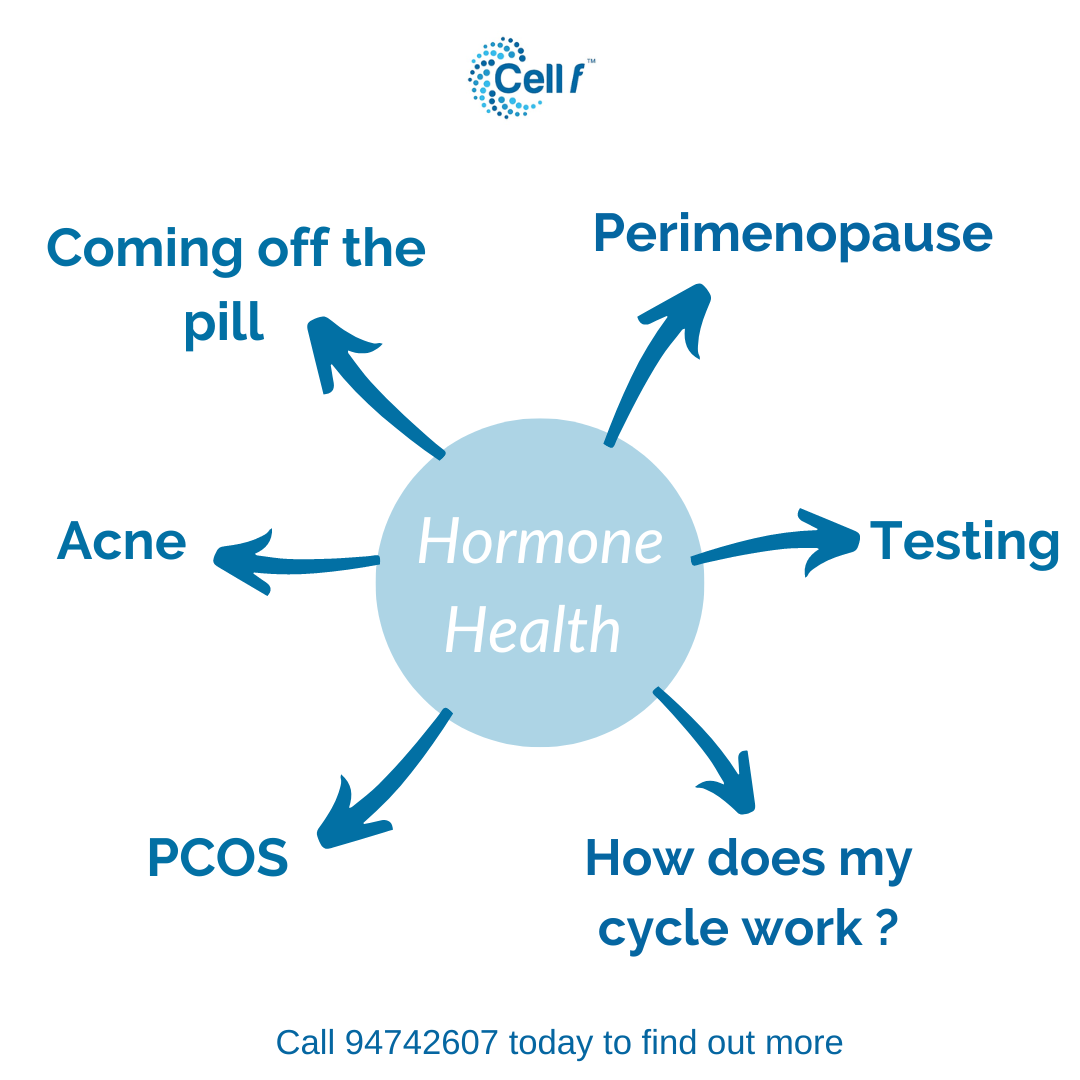Menstruation: What hormones do what?

If you are someone who menstruates and has a regular cycle you may have wondered what is happening every 25 to 30 days, why am I more energized in some parts and less motivated in others?
Hormones modulate neurotransmitter output and receptor function within the body, this means that the number of hormones your body can make and when it makes them directly impacts mood, motivation & appetite. Which may not be surprising.
There are 2 phases to a menstrual cycle the first initiating when a menstrual bleed occurs is known as the follicular phase, once ovulation occurs you enter the second part known as the luteal phase. If the implantation of an egg in the endometrium hasn’t occurred, the cycle repeats.
The first half is more dominated by Estrogen and other hormones known as follicle stimulating hormone and lutenising hormone. These help instigate the building and preparation of the uterus and thus for progesterone to take off in the second half. Oestrogen is key here to optimal progesterone, but the ultimate regulator of feedback and hormonal output is the hypothalamus located in the brain. Further down the line our reproductive organs also control hormonal output as well as thyroid, liver, gut, and adipose tissue.
Photo credit to: Hello Clue

Interestingly oestrogen is an encourager of dopamine and supports Glutamate. Dopamine being our reward/motivation hormone and Glutamate being excitatory ‘let’s go’ energy, so we love oestrogen to get us up and about and trying new tasks.
Progesterone can promote GABA our off switch and decrease sensitivity to dopamine, this means in the second part of your cycle (luteal) the hormonal output is more supportive to low energy and you may feel less motivated and less willing to start new adventures and that is completely normal.
Food intake and your menstrual cycle is very important. There are different within a cycle to eat particular foods. In the second half, we make our progesterone which means we need adequate protein and progesterone building foods. Think dense low GI carbohydrates like cauliflower, squash, green leafy vegetables, nuts and seeds, cruciferous vegetable family, citrus fruit.
Keep in mind fasting produces cortisol and progesterone does not respond effectively to stress, so in the second half when we want to optimise progesterone, keeping stress low is a key. Fasting over 14 hours during this time is not ideal to see the best results in your cycle.
The stages of the cycle
- Menstruation day 1-7: let inspiration come, don’t push yourself to be doing a lot and make sure you utilise the time to rest and restore as hormones are low and it is natural to feel less motivated and have a lower tolerance for things that don’t fit with your inner needs/wants
- Pre-Ovulation Day 8-11 (roughly): more motivated, driven, and focused, you may feel restless if you are not allowing time to get things done, make plans and ways to reach goals, let being out in the world fill your cup
- Ovulation: 3 days around day 14: your confidence here can feel greater, and you may want to be more social – embrace it!
- Premenstrual phase: last 10-14 days of your cycle. A good time to be self-assured in your boundaries, you may feel more like filling your cup by going inwards. Here it is natural to have a less filtered approach to life due to neurotransmitter changes. Think of this as the nourish phase of your inner world, take off your expectation and find ways to allow insight or feelings that may come forward. Not a time for fasting or your highest intensity workouts.
Final thoughts on hormones
The most important takeaway to note from this is that if you menstruate you will not feel the same every day of your cycle, in fact how you live your life from when to fast, how to eat, how to train, how much time to spend with friends or doing hobbies, how important it is to manage stress will ALL vary depending on the day of your cycle.
If you would like to know how to optimise your hormones, get better hormonal balance and manage unwanted symptoms or just know more about your cycle, contact Cellf today for a functional medicine consult to see how we can help support your hormones and individual hormonal health.
For other hormone related topics see What is Hormone Support?

